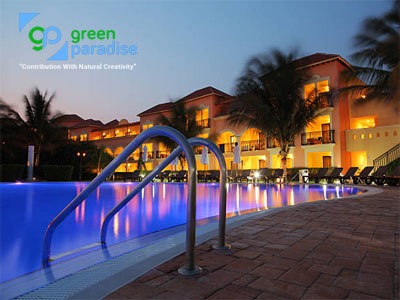Swimming is always the best way to pass time on a hot and sunny day and there are so many sports, games and recreational activities, and pass-times that you can opt anytime along with swimming.
Whether you are attending a pool party, spending a week on a cruise, or boating at a lake, being able to swim always means that you can do more and enjoy yourself better.
But swimming is merely not restricted to leisure and recreation; it is also a healthy activity to follow.
Improvement in Flexibility
Swimming always helps you to get rid of contortionism, and it improves your flexibility. When you swim, you are stretch and twist your various muscles which helps them to remain limber.
Great Work Out
Swimming provides you a full body workout that strengthens all your muscles associated with legs, arms and abdomen. This is because you constantly move and use almost every muscle of your body as your legs are kicking, your arms paddling, your back is twisting with each stroke and your core is tightening to keep you afloat and move more effectively.
It provides you a better workout option as compared to land as your body will not experience overheats keeping you calm, composed and relaxed.
Improvement in Heart and Lungs
Swimming is an aerobic exercise, when you swim, your muscles need more energy as it secrets more lactic acid. A key component in generating that energy is oxygen, which is delivered through your bloodstream. When you swim, you use your muscles more vigorously, your lungs work harder to increase your oxygen intake and your heart rate increases so that your heart can deliver the more oxygenated blood than usual to your muscles resulting in strengthening of your heart and lungs muscles along with improvement in blood circulation.
The simplified reason behind this is that aerobic exercises like swimming, makes your heart and lungs work harder which strengthens them and makes them more efficient to perform their desired action.
Stress Reliever
Exercise or Physical Workout, in general, is always beneficial for your physical as well as mental well-being as it releases endorphins which are a feel-good chemical your brain produces. Besides, swimming also has some meditative qualities as the rhythm of your strokes and breathe along with the splash of water can augment the feel of peace and relaxation to your
In case you want to enjoy the best swimming pool company services in Dubai, then Green Paradise is the one-stop solution for you. We are among the UAE’s leading swimming pool companies determined to fulfill the aesthetic desires of our customers. We are committed to achieving the highest level of trust and excellence by providing stunning and innovative projects. Our vision is generated from aesthetic needs that directly correlate to the desires of our clients making us the best swimming pool contractors in Dubai.



